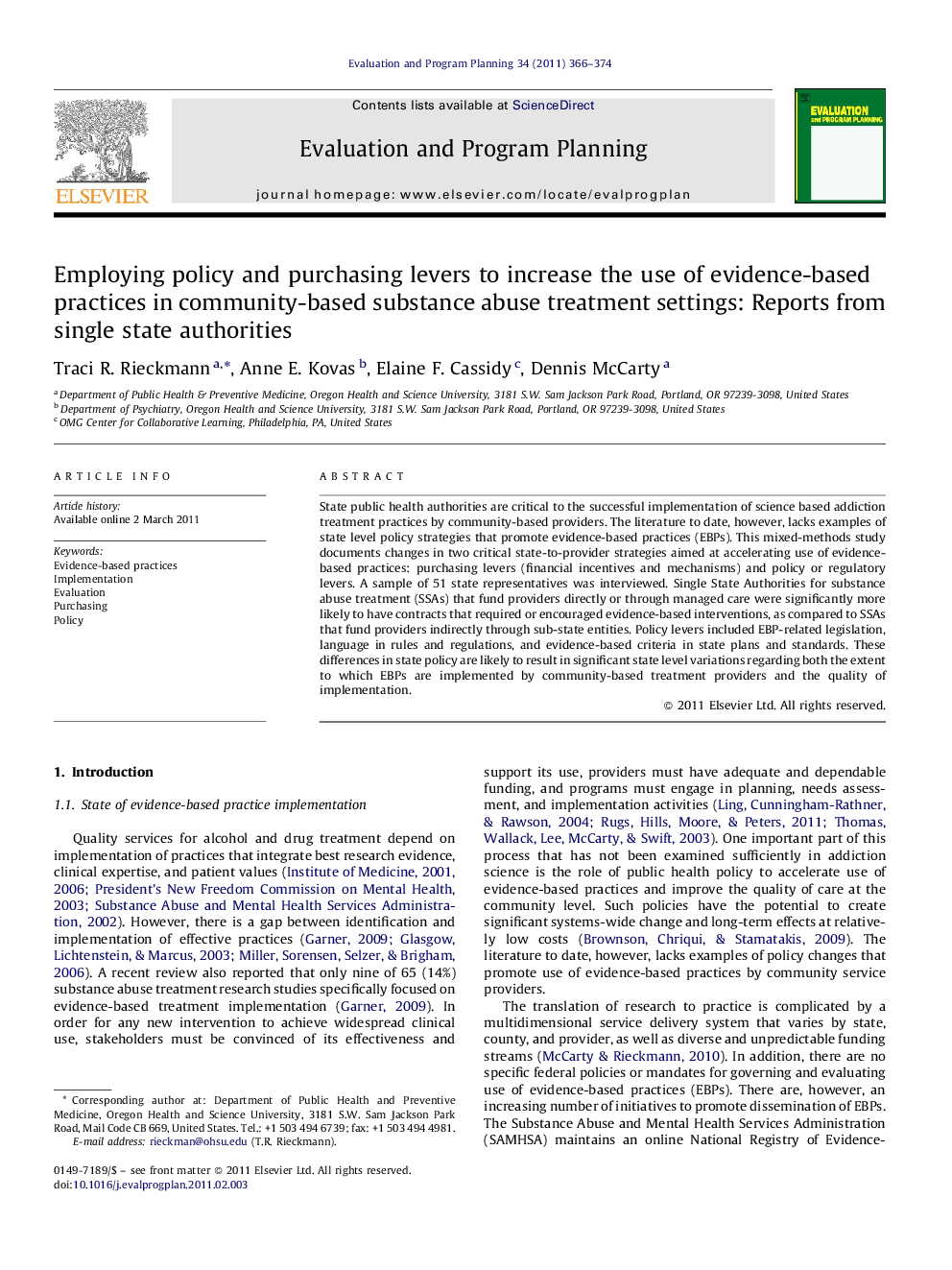| Article ID | Journal | Published Year | Pages | File Type |
|---|---|---|---|---|
| 322356 | Evaluation and Program Planning | 2011 | 9 Pages |
State public health authorities are critical to the successful implementation of science based addiction treatment practices by community-based providers. The literature to date, however, lacks examples of state level policy strategies that promote evidence-based practices (EBPs). This mixed-methods study documents changes in two critical state-to-provider strategies aimed at accelerating use of evidence-based practices: purchasing levers (financial incentives and mechanisms) and policy or regulatory levers. A sample of 51 state representatives was interviewed. Single State Authorities for substance abuse treatment (SSAs) that fund providers directly or through managed care were significantly more likely to have contracts that required or encouraged evidence-based interventions, as compared to SSAs that fund providers indirectly through sub-state entities. Policy levers included EBP-related legislation, language in rules and regulations, and evidence-based criteria in state plans and standards. These differences in state policy are likely to result in significant state level variations regarding both the extent to which EBPs are implemented by community-based treatment providers and the quality of implementation.
